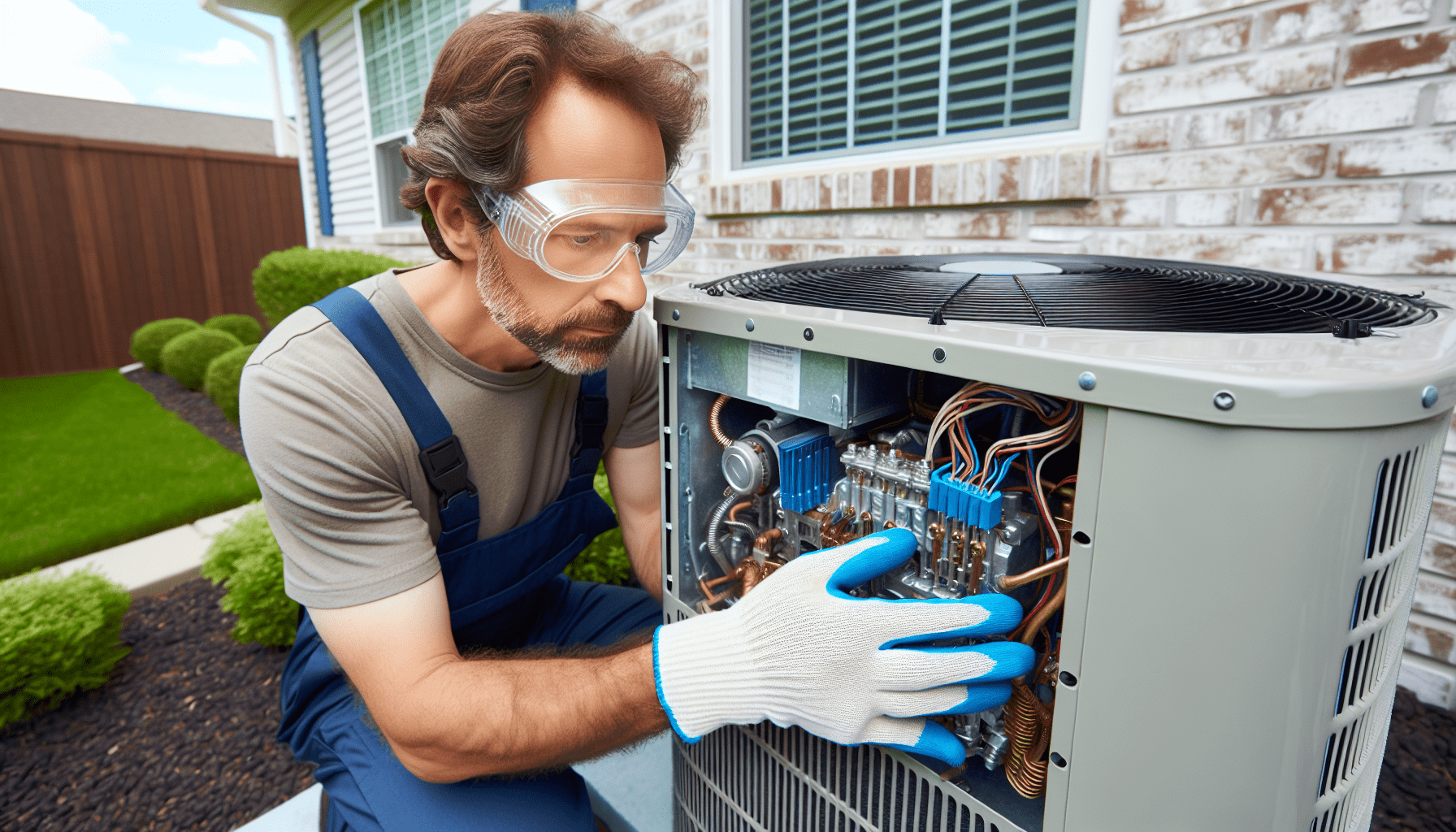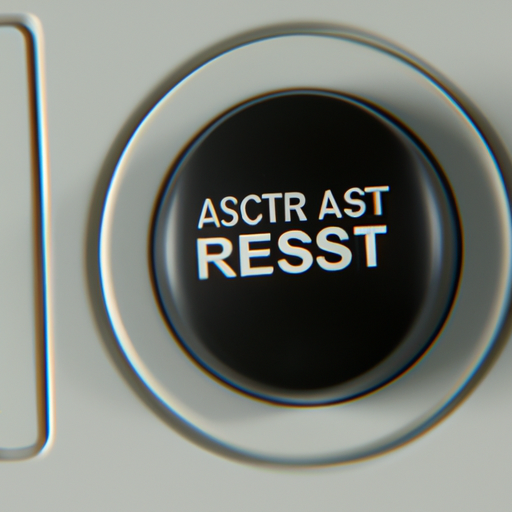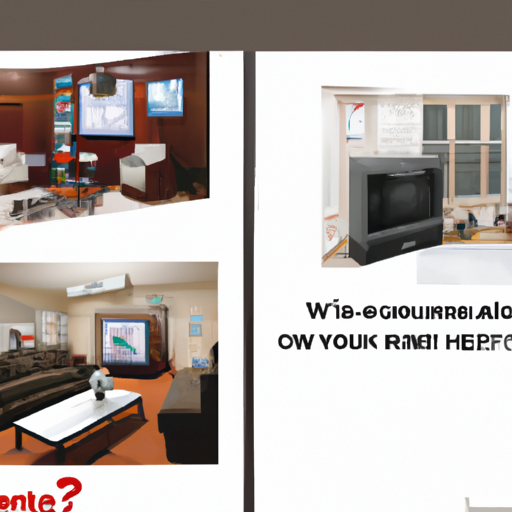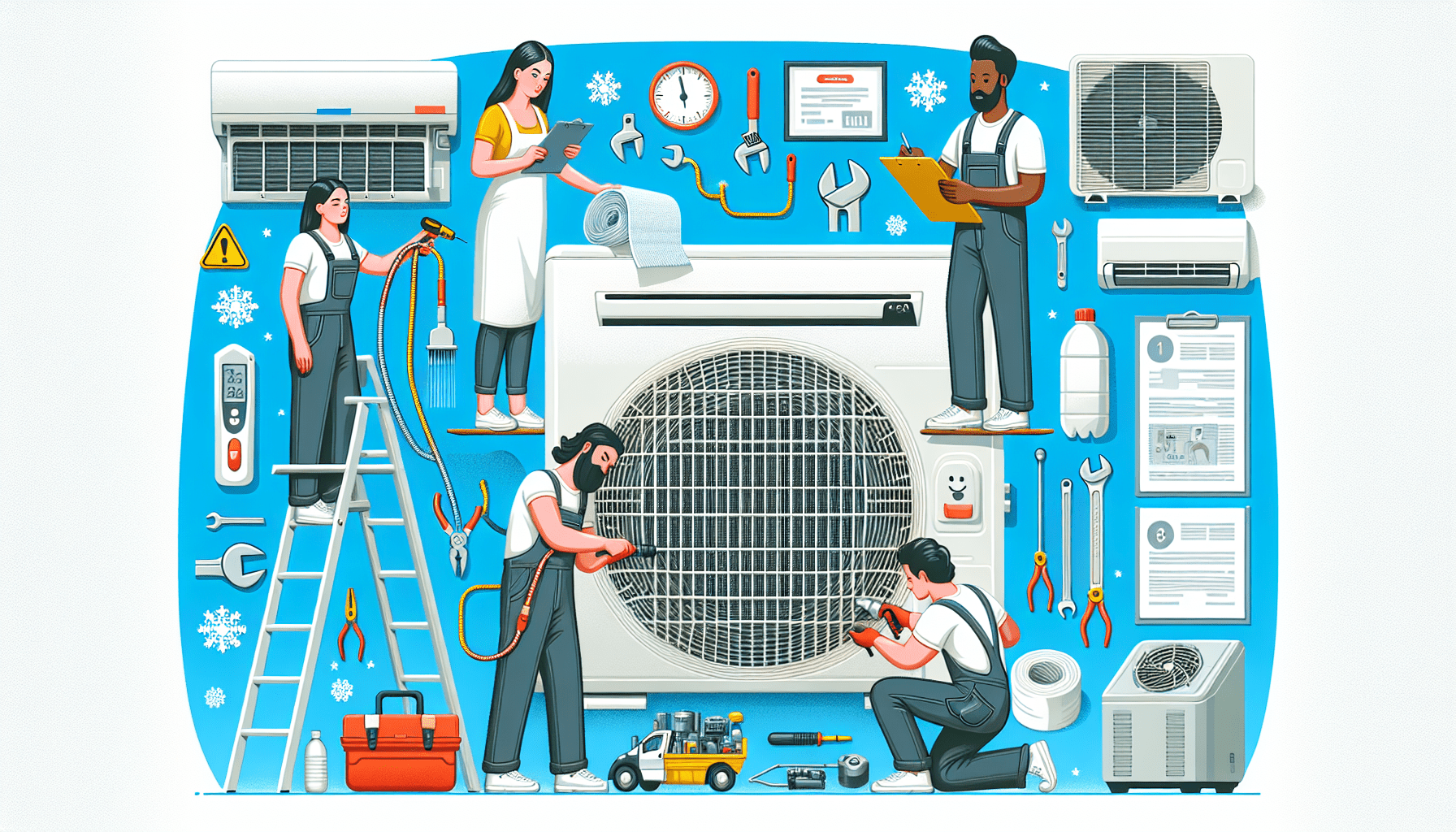Hey there! Before you dive into the world of central air conditioning installation, there are a few key things you should know to ensure a smooth and successful process. From understanding your home’s layout to considering energy efficiency, this article will guide you through the essentials of what you need to know before installing central air conditioning. Let’s get started! Are you considering installing central air conditioning in your home, but not sure where to start? Don’t worry, we’ve got you covered! In this guide, we will walk you through everything you need to know before making the decision to install central air conditioning. From understanding the benefits to choosing the right system for your home, we’ve got all the information you need to make an informed decision. Let’s get started!

Understanding the Benefits of Central Air Conditioning
Central air conditioning offers many benefits for homeowners, including:
- Consistent cooling throughout your entire home
- Better air quality by filtering out dust and allergens
- Increased energy efficiency compared to window units
- Improved resale value of your home
When you install central air conditioning, you’re not only investing in your comfort but also in the value of your home. Say goodbye to the hassle of dealing with multiple window units and welcome the convenience of consistent cooling throughout your entire home.
Making the Decision to Install Central Air Conditioning
Deciding to install central air conditioning is a big investment, both financially and in terms of your home’s comfort. Before making the decision, consider the following factors:
- The size of your home
- Your budget for installation and maintenance
- The climate in which you live
- Your long-term plans for the property
Think about your lifestyle and how central air conditioning can enhance your home. Consider factors such as the size of your home, the climate in which you live, and your budget for installation and maintenance. Central air conditioning can provide year-round comfort and convenience, but it’s important to make an informed decision before moving forward.
Choosing the Right System for Your Home
When it comes to choosing the right central air conditioning system for your home, there are several factors to consider. Here are some key considerations to keep in mind:
System Type
There are two main types of central air conditioning systems: split systems and packaged systems.
- Split Systems: These systems have an indoor unit and an outdoor unit connected by refrigerant lines.
- Packaged Systems: These systems have all components housed in a single unit located outside of the home.
Consider the layout of your home and your specific cooling needs when choosing between these two system types.
Unit Size
It’s crucial to choose the right size unit for your home to ensure optimal performance and efficiency. An oversized unit will cycle on and off frequently, leading to increased wear and tear, while an undersized unit will struggle to cool your home effectively.
Energy Efficiency
Look for a central air conditioning system with a high SEER (Seasonal Energy Efficiency Ratio) rating to ensure energy efficiency and lower utility bills. Energy-efficient systems help you save money in the long run while reducing your carbon footprint.
Installation and Maintenance Costs
Factor in the upfront costs of installation as well as ongoing maintenance costs when choosing a central air conditioning system. Consider getting multiple quotes from reputable HVAC contractors to ensure you’re getting the best deal for your budget.
Preparing Your Home for Central Air Conditioning Installation
Before the installation process begins, there are a few steps you can take to prepare your home:
- Clear the area around where the outdoor unit will be installed.
- Ensure there is easy access to the indoor unit for maintenance purposes.
- Schedule an inspection of your ductwork to check for leaks or blockages.
Proper preparation ensures a smooth installation process and optimal performance of your central air conditioning system.
Hiring a Qualified HVAC Contractor
When it comes to installing central air conditioning, it’s crucial to hire a qualified HVAC contractor with experience in installing these systems. Look for contractors who are licensed, bonded, and insured to protect yourself in case of any issues during the installation process.
Obtaining Permits and Approvals
Before installing central air conditioning, check with your local government to see if you need any permits or approvals. Some jurisdictions require permits for HVAC installations to ensure compliance with building codes and regulations.
Scheduling Installation
Once you’ve chosen a system and hired a contractor, schedule a convenient time for the installation to take place. Plan for the installation to take at least a full day, depending on the complexity of your system.
Maintenance and Care for Your Central Air Conditioning System
Proper maintenance is key to keeping your central air conditioning system running smoothly and efficiently. Here are some maintenance tips to keep in mind:
Regular Filter Changes
Change your air filters regularly to ensure proper airflow and prevent dust and allergens from circulating in your home. Check the manufacturer’s recommendations for how often to change your filters.
Professional Inspections
Schedule annual inspections with a qualified HVAC technician to check for any issues and ensure your system is running at peak performance. Regular maintenance can help prevent costly repairs down the line.
Cleaning the Outdoor Unit
Keep the area around your outdoor unit clean and free of debris to ensure proper airflow and prevent damage to the system. Trim back any vegetation that may be encroaching on the unit.
Adjusting Thermostat Settings
Consider investing in a programmable thermostat to adjust the temperature of your home based on your schedule. This helps reduce energy usage and can save you money on your utility bills.

Troubleshooting Common Central Air Conditioning Issues
Even with proper maintenance, central air conditioning systems can experience issues from time to time. Here are some common problems and troubleshooting tips:
Lack of Cool Air
If your central air conditioning system is not producing cool air, check the thermostat settings and make sure it’s set to “cool” mode. Also, check the air filters and ensure they’re clean and free of debris.
Uneven Cooling
If certain rooms in your home are not cooling properly, check for leaks in your ductwork or blocked vents. Also, consider installing a zoning system to control the temperature in different areas of your home.
Strange Noises
If you hear unusual noises coming from your central air conditioning system, it could be a sign of a problem. Schedule an inspection with a qualified technician to diagnose the issue and make any necessary repairs.
High Utility Bills
If you notice a sudden increase in your utility bills, it could be a sign that your central air conditioning system is not working efficiently. Schedule a maintenance check to ensure your system is running at peak performance.
Conclusion
Installing central air conditioning can enhance your home’s comfort and increase its value, but it’s essential to make an informed decision before moving forward. Consider factors such as system type, unit size, energy efficiency, and installation costs when choosing a system for your home. Proper maintenance and care are key to keeping your system running smoothly, and troubleshooting common issues can help you address any problems that may arise. With the right information and preparation, you can enjoy the benefits of central air conditioning for years to come.





